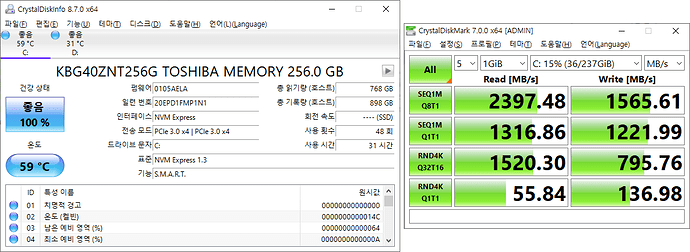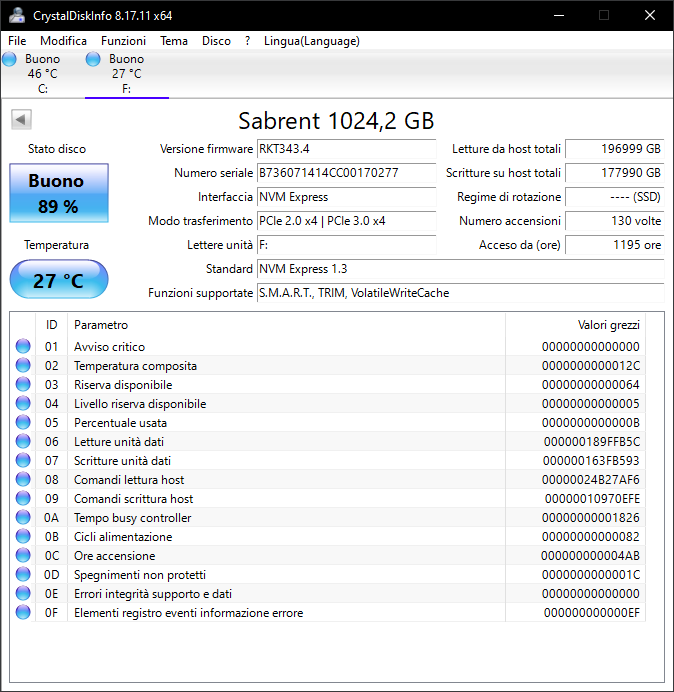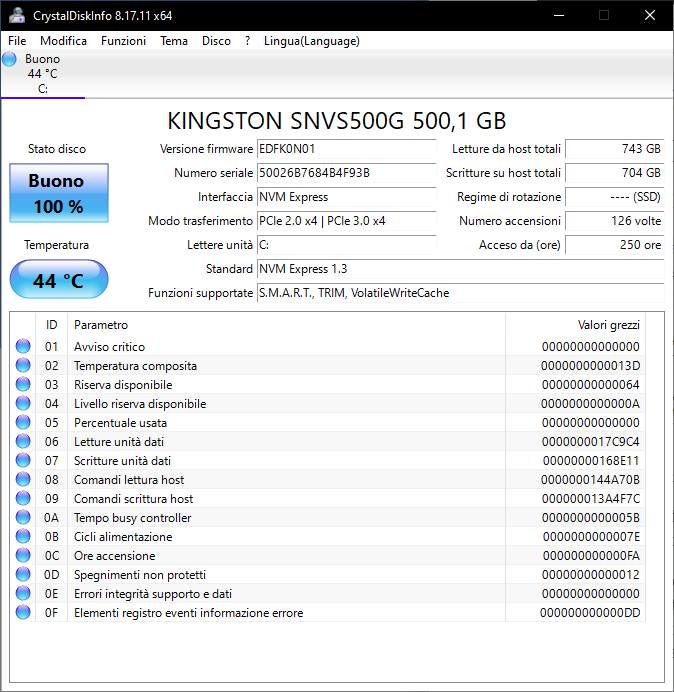Hi everyone; long time lurker, first time poster ![]()
I bought a Toshiba/Kioxia KBG40ZNT256G 256GB NVMe SSD for my work laptop, a Broadwell based HP EliteBook 840 G2 which only has a 2242/2260 2x PCIe slot, but it’s not recognized by the system.
So, yesterday I started banging my head on a brick wall:
- tried the SSD on my desktop, on an MSI Z97 Gaming 7 with an i7-4790K, both on the integrated M.2 PCIe 2x slot, and on a PCIe 16x slot using two different adapters; no dice.
- tried on an Asrock 960GM-GS3 FX with a prehistoric Sempron 140, on two different PCIe adapters; same as before.
- finally tried on my newest PC, with an Aorus B450 M and a R5 2600X IIRC, recognized it right away!
To check if the laptop and previous PCs had M.2 slots compatible with PCIe drives I took my other Sabrent Rocket NVMe M.2 drive and tested all of them: all PCs recognized the PCIe drive, even the EliteBook (!) while holding it at an angle because the Sabrent is a 2280 and the slot is a 2260/2242.
I then started scouring the internet, and saw a couple of post regarding a possible firmware update for the Dell branded BG4, altough those are the 2230 and not 2242 (respectively KBG40ZNS and KBG40ZNT), which supposedly mitigated those compatibility issues.
Upon further research I found the Lenovo update package which included my SSD part number, however it didn’t like the OEM FW which came on my drive: AELA0105. After digging a little more in the Lenovo package there was a list of “approved” base fws, so I tried adding mine, and lo and behold:

I had to fiddle a little bit with the executable as it wouldn’t let me update the firmware without a battery. In a desktop computer.
Found an older executable, from the Lenovo chinese website (package name FWNVA40, for anyone interested), and added my drive to the list of supported drives.
Fingers crossed (since I was doing an unsupported upgrade…) aaaand here we are with 0109AELA:

Did it make any difference? No. Still not recognized in any of the “old” PCs ![]()
The only odd thing I noticed is even after the FW update it’s still recognized as a PCIe 2x device, while on the PCB there are 4 lines which suggest it could run at 4x:

Also, some online benchmarks quote way faster speeds that a PCIe 2x couldn’t do; mine on the AMD board does this on the last firmware:

Am I missing something here? Why on earth does this SSD work only on one motherboard (the newer, BTW) and not on the other three?
All of them recognize PCIe NVMe drives, just not this Toshiba/Kioxia.
TL;DR: bough a cheap ass NVMe SSD, can’t get it recognized on older PC which supports NVMe drives even after fw updates. Speculation it may also be software limited to PCIe 2x?



